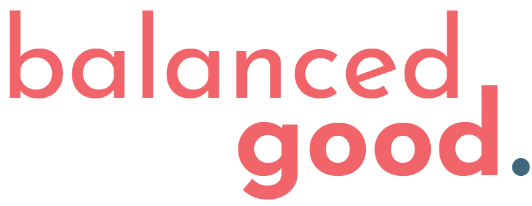Have you ever found yourself sitting daydreaming about how you can make fundraising data more equitable and inclusive? If you’re like me, you probably haven’t (but should be). This is why I was so grateful to meet Meena.
Meena (She/Her/Hers) is the founder and nonprofit analytics consultant of NamasteData. Meena is a first-generation immigrant, who moved to North America 6 years ago. She moved to Canada from the U.S. at the start of the pandemic. She currently lives in Vancouver. Apart from her brother, who lives in Toronto, the rest of Meena’s family lives in India.
I first met Meena through the 2022 Happy You Year conference in January. I was blown away with her thoughtful approach to inclusivity and representation in data, donor research, and donor engagement surveys.
In addition to her work at NamasteData, Meena volunteers with AFP-Global and the AFP Vancouver Chapter and mentors two women of colour who have recently immigrated to Canada and the United States. She also volunteers with almost 10-15 non-AFP small shops across U.S. and Canada.
Again, another incredible woman pushing boundaries in our sector and doing the work to improve our sector. I’m so thrilled to share my chat with Meena, I hope you will walk away from this inspired to ensure you include an inclusive lens when it comes to your data.
LinkedIn Page: http://www.linkedin.com/in/meenadas
1. Briefly tell me about a day in the life of Meena Das.
Can I say that depends on the day? 😊
I am learning to be flexible in building my days. For my happy and productive days, I have a healthy window where I connect with my clients and prospects, spend time to write, learn something new in my work. For the bad days, I allow myself unforgivably as much time as needed to process any pain, anxiety, or chaos I am experiencing. I allow myself to choose my ways to respond to any non-positive feelings.
In between those good and the bad days, I carve out “out of office” days for myself – those hours are for me to walk or find the corner-most couch in my library to read a random book – the book could be of my known genre/author, or I pick something interesting.
2. We met at Happy You Year this past January, and I loved your approach to inclusivity in data and prospect research. Can you explain more about what inspired your work on this space?
I have spent a major chunk of my time in the past jobs, before I started my consulting practice, on doing research and analytics for nonprofits of various size and sectors. After doing many of those analysis, I started to observe none of my analysis include people like me (with multiple components forming intersectionality in identity). Majority of work ended with 1-3 similar kind of profiles/backgrounds. This bothered me – because one, it limited the vision/definition of philanthropy and two, it did not include all people who should be included in these conversations.
So, now I am building my practice for working, advocating, and supporting nonprofits with research and analytics practices that are grounded in inclusion and social equity.
3. Why is this important now?
I think this subject always mattered. The lived experiences of people that often goes unnoticed, unheard in the data, research and analytics always existed. It’s the pandemic that somehow expedited in highlighting this gap. Within the past 2.5 years, we have been hit with crisis after crisis as a world, that we have plenty of social justice issues to think and act about. In the midst of that awakening, it only feels right to bring forward the gaps that exist in data and our research practices.
4. What is the top piece of advice you would offer a small fundraising shop looking to take a more inclusive perspective when it comes to prospect research and data maintenance?
Two things:
- Carve space to talk and understand about your data. That doesn’t mean just knowing the numbers in your database. It means exploring where did those numbers came from. Why does it includes/excludes what it has/missing?
- Invest time in learning about non-traditional identities. Prospect research and data maintenance are not solely about the science. Its also about the art, and that can only come when we learn about what we don’t know. The more we understand different identities, the better we are positioning ourselves to build better data and systems of the future.
5. When we recently chatted, I really was moved by your story and path to launching Namaste Data. I also appreciated your candidness about struggles about work-life balance, especially as this related to your journey as a first-generation Canadian. This statement you shared really stuck out to me “While trying to fit in to a new culture (and all their 90’s sitcom references that I wasn’t familiar with) while also holding on to my culture like my Indian kurtas, food etc. I realized I was overcompensating in work to hide my struggles. I created a narrative in my head that work was fulfilling me, and I dove into my work. What I realized now is that led to little time for self reflection, for self growth, and didn’t allow me to identify what I really wanted to do in my career.” Can you speak to this a little bit more?
All questions are so thoughtful, but this one might be my favourite. As a first-generation immigrant (especially as someone who immigrated only 6 years ago), I have often found myself in situations where I am struggling to fit in. Whether it’s the references of cheese-wine pairings, salad dressings or sitcoms of the 80s. I have Googled a ton of such areas. Initially, it never bothered me because I thought I was learning something new. But slowly, I started to realize it’s a lot of work to learn facts and somehow try to join a group conversation. To make up for my silences or confused face, I realized I put way too much effort into my tasks – perhaps trying to compensate for the cultural differences. Eventually, now I am finally coming to a point of being very comfortable of not knowing nuances of cultural references I do not understand. I do not Google unless I want to learn something. But, I realized, what truly matters to me is giving myself the space to remember my foundations/roots while adopting/learning parts of this new culture. I would always have both a little East and a little West in my identity. I now want to bring this whole, authentic self to my work.
6. I’ve chatted a lot about the importance of mentorship, and I know this is something you are passionate about as well. Can you share a bit more about your work mentoring 30+ immigrant women in technology and data science related careers?
After I met an accident back in the U.S. few years ago, I truly understood the barriers and challenges of an immigrant. To not have knowledge of legal/health care needs did lead me to devote my free hours into advocating and mentoring immigrants, especially women of color. So, after I moved to Vancouver, I started to formally volunteer with YWCA and from there to having connection requests via LinkedIn for mentoring. I am deeply grateful to each of those women who put their trust in me to guide them in their path. Each of them are intelligent, thoughtful and driven women – for whom I have no doubt that they are going to leave good impression in their jobs and careers.
7. In your opinion, what are the top three things are sector can do to empower diverse fundraising professionals to strive to fill leadership roles?
One, create space for continuous learning of all people (not by asking employees of color to teach from their lived experiences). I often recommend learning analytics doesn’t mean learning about data, machine learning or AI only. It also means learning about non-traditional identities and marginalized communities.
Two, assess internal culture to see all folks feel inclusive and comfortable in bringing their whole self to work. One of the places where I have personally felt out of place is – when my work is censored that its only done in this way. To give an example, I build decks and reports with more in-depth use of colors, using simple animations during narrative building etc. In the past I have been told, let’s stick to no color-no change from the past format. I acknowledge using the branding points, but, we need to leave some space for people to bring who they are, as well.
Three, include people of color in more ways than one. That means, don’t include them only when the words “people of color” come up during presentations, internal staff meetings, webinars etc. Include them in decision making, in brainstorming and strategy ideation hours. New voices shouldn’t be added because the checklist says so. New voices on the table should be heard because everyone sitting on the decision-making table must remember to trust all voices on the table that believe in the mission and the collective work.
8. What is on your current reading list?
I am reading two books these days: 1. Kitchen Confidential by Anthony Bourdain, and 2. Design Justice by Sasha Costanza-Chock.
9. And lastly, when you manage to find a few moments for yourself, what is your go to self-care activity?
I journal – a lot. Journaling saves me from processing a bad day while helping me to celebrate my wins on good days. I believe all of us have most answers we seek hidden in our own stories. Navigating through the messiness around us sometimes make it hard to remember our stories. To be able to sit down with tea, stare at the wall and then write what comes to mind – that creates a space to acknowledge who I am while finding the answers I needed. That’s my way of self-care.
I hope you enjoyed learning a bit more about Meena. If you are inspired to stay up to date with her work (which I’m sure you are after reading this), please subscribe to her data uncollected newsletter on Linked In and check out her virtual school Data is for Everyone.
Here’s hoping I can start to share more conversations in the coming months…but, let’s be honest, I can’t always get to this blog as much as I would like. Who knew entrepreneurship, three kids, volunteering, and all of the others things would be so busy!
As always, please reach out to me if you want to chat, learn more about how Balanced Good can help you find a bit more balance in your life, or simply to say hi!




